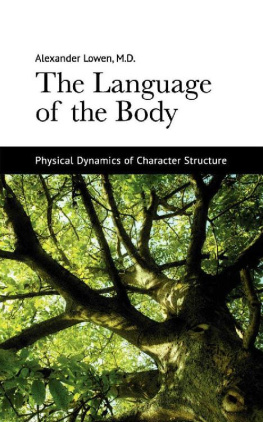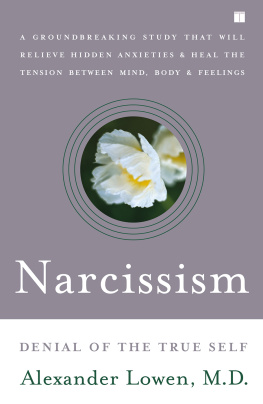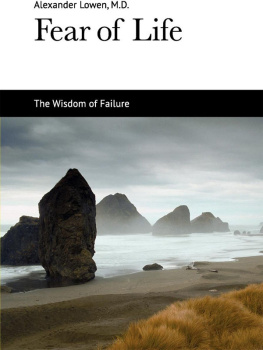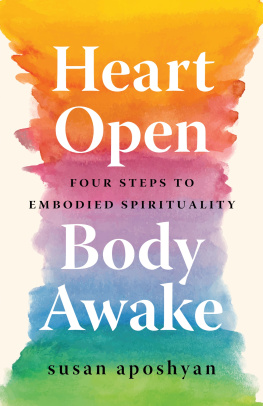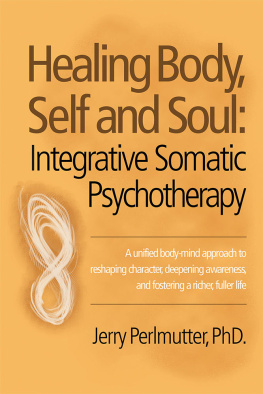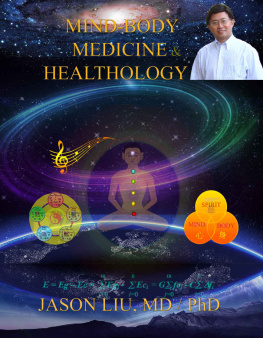
The Spirituality of the Body
Published by The Alexander Lowen Foundation
Shelburne Vermont 05482
www.lowenfoundation.org
Copyright 1988 by Alexander Lowen, MD.
All rights reserved. No part of this book may be reproduced or transmitted in any form or by any means, electronic or mechanical, including photo-copying, recording or by any information storage and retrieval system, without permission in writing from the Publisher.
Except in the United States of America, this book is sold subject to the condition that it shall not, by way of trade or otherwise, be lent, re-sold, hired out, or otherwise circulated without the publishers prior consent in any form of binding or cover other than that in which it is published and without a similar condition including this condition being imposed on the subsequent publisher.
Library of Congress Control Number 2003113355 (2004)
ISBN 978-1-938485-12-l (paperback)
ISBN 978-1-938485-13-8 (ebook)
First Edition by The Alexander Lowen Foundation, 2013
Dedicated to FREDERIC L. LOWEN,
a gentle man.
Contents
Wisemen read very sharply all your private history in yourlook and gait and behavior. The whole economy of nature is bent on expression. The telltale body is all tongues. Men are like Geneva watches with crystal faces which express the whole movement.
Ralph Waldo Emerson
Preface
In this book I shall attempt to uncover healths spiritual face. We shall see that the subjective feeling of health is one of aliveness and pleasure in the body, a feeling that increases at times to joyfulness. It is in such states that we feel a kinship with all living creatures and recognize our connection to the world. Pain, on the other hand, isolates us and cuts us off from others. When we are ill, our health is compromised not only by our symptoms but by the isolation they impose on us.
We shall also see that health is manifested objectively in the gracefulness of the bodys movements, in a bodily radiance or glow (no wonder we speak of glowing health), and in the bodys softness and warmth. The total absence of these qualities denotes death or a fatal illness. The softer and more pliable we are, the closer we are to health. As we become more rigid with age, we draw closer to death.
Aldous Huxley describes three forms of grace: animal grace, human grace, and spiritual grace.
However, humans do not and perhaps cannot live on the same plane as wild animals, for the fullness of animal grace, according to Huxley, is reserved for them. Mans nature is such that he must live a self-conscious life in time. What this means, according to Huxley, is that animal grace is no longer sufficient for the conduct of life and must be supplemented by deliberate choices between right and wrong. We must grant the validity of Huxleys argument, but if animal grace is not sufficient for the conduct of human life, it may still be necessary. To put it differently, how can behavior truly be gracious if it lacks a foundation in the bodys animal grace? When one deliberately adopts a gracious style without grounding it in bodily feelings of pleasure, such graciousness is no more than a facade erected to impress or deceive the world.
According to the Bible, prior to eating the forbidden fruit of the tree of knowledge, man lived in the Garden of Eden without self-consciousness, just like any other animal. He was innocent and knew the joy of living in a state of grace. Along with the knowledge of good and evil came the responsibility to make choices, and man lost his innocence and became self-conscious. The harmony that had existed between man and God, between man and nature, was destroyed. Instead of the bliss of ignorance, man now knew and experienced dis-ease. Joseph Campbell places some of the responsibility for this loss of harmony on the Christian tradition, which separates the spirit from the flesh. The Christian separation of matter and spirit, of the dynamism of life and the values of the spirit, of natural grace and supernatural grace, has really castrated nature.
Behind the Christian tradition is the Judeo-Grecian belief in the superiority of the mind over the body. When mind and body are separated, spirituality becomes an intellectual phenomenon -a belief rather than a vital force-while the body becomes simply flesh, or a biochemical laboratory, as in modem medicine. The dispirited body is characterized by its relative unaliveness and lack of grace. Its movements tend to have a mechanical quality, since they are to a large degree determined by the mind or will. When the spirit moves the body, it quivers with excitement and bounds with enthusiasm, like a stream cascading down a mountainside, or flows quietly, like a wide and deep river in a plain. Life does not always flow smoothly, but when one has to push or drag ones self through the days, there is something seriously wrong in the bodys dynamics that disposes the person to illness.
True gracefulness is not something that is learned; it is part of mans natural endowment as one of Gods creatures. Once lost, however, it can only be recovered by reestablishing the bodys spirituality. To do that, we need to understand both why and how it was lost. But since one cant recover a lost object unless one knows what it is, we will start with an investigation of the natural body, one in which movement, feeling, and thinking are integrated in graceful actions. We will study the body as a contained and self-maintained energetic system that is dependent on and constantly interacting with the environment for its survival. An energetic perspective will enable us to comprehend the true nature of bodily grace and spirituality without becoming mystical. This will lead to an exploration of the role of feeling in human grace. In the absence of feeling, movement becomes mechanical and ideas become abstractions. One can preach love to a broken-spirited person whose soul is full of hate, but such preaching is ineffective. If we can restore the integrity of his spirit, his love will shine forth. We will investigate some of the disturbances that break a persons spirit, diminish the bodys gracefulness, and undermine its health. Focusing on grace as a criterion of health will enable us to understand many of the emotional problems that plague human beings and to develop the gracefulness that promotes health.
Spirit and matter are joined in the concept of grace. In theology, grace is defined as the divine influence acting within the heart to regenerate, sanctify and keep it. It could also be defined as the divine spirit acting within the body. The divine spirit is experienced as the natural gracefulness of the body and in the graciousness of the persons attitude toward all of Gods creatures. Grace is a state of holiness, of wholeness, of connection to life, and of unity with the divine. This state is also one of health, as we shall see.
Notes
.Aldous Huxley, The Perennial Philosophy (New York: Harper & Row, 1945),89-91.
Ibid., 166.
.Ibid., 269.
.Joseph Campbell, The Power of Myth (New York: Simon & Schuster, 1988), 199.
1 The Concept of Grace and Spirituality
Our striving for health can be effective only if we have a positive concept of health. Defining health as the absence of disease is a negative view because it sees the body as a mechanic might look at an automobile, the parts of which can be replaced without disturbing the machine. That is not true of any living organism and certainly not true of human beings. We have feelings, which no machine has; we move spontaneously, which no machine is able to do; and we are connected in a very deep way to other living organisms and to nature. Our spirituality derives from this sense of connection to a force or order greater than ourselves. It matters little what name we give it or whether we leave it nameless, as the Hebrews do.


